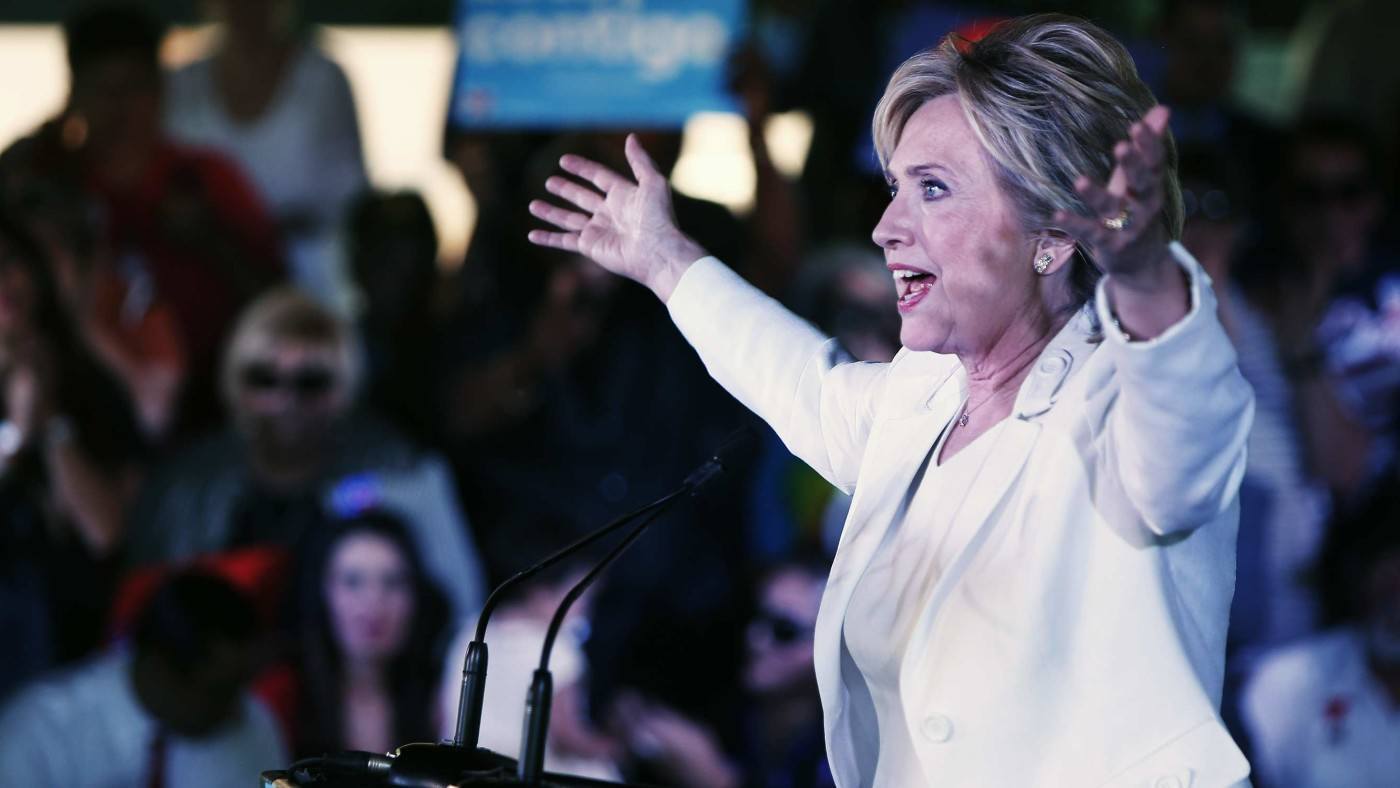So, after Hillary Clinton won Iowa by a hairsbreadth margin of 0.3 per cent and was trounced in New Hampshire by 22 per cent, she must be trailing in the number of delegates crucial to securing nomination at the Democratic convention, right? Wrong. Hillary Clinton garnered the same number of delegates in New Hampshire – 15 – as Bernie Sanders because, of the state’s eight superdelegates, six opted to support her. Clinton already has nine times as many delegates as Bernie Sanders – 394 to 44.
Democracy is never to be confused with mob rule, in the eyes of the Democratic National Committee, which drew up the rules governing unpledged delegates – colloquially “superdelegates” – based on the Hunt Commission in 1982. These “unpledged” delegates are drawn from the party establishment – all Democratic congressmen, governors, DNC members and “distinguished party leaders” – basically, the boys who can be relied on to keep the party under control.
Originally the superdelegates accounted for 14 per cent of delegates (Hunt had wanted 30 per cent), but the number has crept up. Today there are 710 out of 4,764 convention delegates. Normally they would be spread across a variety of candidates, diluting their influence, but in a confrontation between establishment Hillary Clinton and insurgent Bernie Sanders they are closing ranks to defend the status quo.
Polling suggests Sanders has such a mountain to climb in the states about to be contested that he will not survive long enough to be assassinated by the superdelegates at the convention. But if there were a political earthquake, and there have been a few seismic tremors already in this election, and he made it to the convention within a margin of just a few hundred delegates short of Clinton, his elimination by superdelegates from the political elite would lethally convulse the Democratic Party.
The Republicans have unpledged delegates too and Donald Trump tried to reinforce his outsider credentials by complaining: “My disadvantage is that I’d be going up against guys who grew up with each other, who know each other intimately, and I don’t know who they are…” Karl Rove, former Bush adviser, expressed similar concern in an article, but was quickly corrected by the Republican National Committee.
It pointed out that Republican superdelegates not only account for just 7 per cent of delegates, but convention rules now oblige them to vote proportionally to the primary election results, so the electoral will cannot be frustrated. What the Republican hierarchy was less keen to advertise is that this inability to block Trump is due to rule changes introduced in 2012 for the purpose of preventing a recurrence of the threat posed by Ron Paul, to whom unpledged convention delegates rallied despite his having lost elections in their states.
So, the GOP unintentionally cleaned up its backyard, in respect of delegates, before the insurgency arose. But the Democratic Party, in the face of the current insurgency and regardless of the fate of Bernie Sanders, may find it impossible to justify and retain its Praetorian Guard for much longer.


